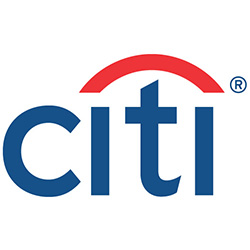Family Office
Equity Demand On The Rise In Family Offices – Citi

Citi Wealth has just released its family office investment report for the first quarter of 2024, providing a snapshot of how Citi Private Bank’s single family office clients are positioned and providing insight into regional flows, across Asia Pacific, Europe, the Middle East and Africa, Latin America and North America.
A new report by Citi Wealth, part of Citigroup, shows that global investors’ risk appetite increased in the first quarter of 2024. Sentiment was bolstered by growing evidence of US economic resilience and recovery in global demand.
While hopes of imminent, numerous US interest rate cuts were dashed, expectations of reductions later this year endure. Elsewhere, such as in Europe, monetary policy may be eased sooner, the report reveals. Against this backdrop, family offices have reduced cash holdings. Equities continued to advance in much of the world. Developed markets have seen the best of the action. The US, Europe, and Japan all enjoyed double-digit upside during the period. Emerging markets have had more modest gains, with Latin America the only region to retreat, the report shows.
The focus was on developed large cap shares, despite the high valuations of many US technology stocks such as the “Magnificent Seven” ie Amazon, Apple, Google parent Alphabet, Meta Platforms, Microsoft, Nvidia, and Tesla. Developed small and mid-cap equities also saw raised allocations in all parts of the world, according to the report.
The analysis is based on investment assets held by single family office clients at Citi Private Bank. Citi Private Bank’s global family office group considers a single family office to have $250 million net worth. Data is taken from more than 1,200 single family office clients globally and filtered for size and allocation characteristics.
In particular, the report shows that there was the biggest equal-weighted increase in equities of any region in Europe, the Middle East and Africa, with developed large caps accounting for about 61 per cent of equities overall trading volume. Emerging markets also experienced a net dollar inflow thanks to concentrated flows into Indian banks, whilst allocations to developed small and mid-caps increased amid historically low valuations.
Meanwhile, family offices in the Asia-Pacific region on average increased their equity and fixed income holdings, while those with larger portfolios upped their allocation to the former but were flat in the latter.
In North America, the average client (equal-weighted basis) pared equities exposure, whereas those with large portfolios (capital-weighted basis) typically increased holdings, driven by US large cap equities. US small and mid-cap equities allocations also rose, thanks to historically low valuations.
Mabrouk Chetouane, head of global market strategy, Natixis Investment Managers Solutions, also favours equities in 2024. "We want to add equities to investors portfolios,” Chetouane said. He believes that the momentum behind equities at the start of the year is still there. He has decided to maintain his firm's exposure to equities or reinforce it in some portfolios. See more commentary here.
Fixed income
By contrast, fixed income has had a soft start to the year,
primarily resulting from investors retreating from bets on early
US interest rate cuts. Higher quality corporate and sovereign
bonds in developed markets were worst hit. High yield and
emerging market have held up better, though. Developed investment
grade allocations were also again somewhat in favour on both an
equal weighted and capital-weighted basis, the report reveals.
Nevertheless, fixed income in Latin America received the largest inflow, with equities trailing. On average, US investment grade bonds were the most popular in Latin America, but for family offices with the largest asset holdings, emerging market bonds were favoured. Equity exposure also rose on both an equal and capital weighted basis, with US small and mid-cap equities seeing the largest increases, albeit from a low base.
Within alternative asset classes, there were increased allocations to private equity across all regions whilst hedge funds broadly experienced reduced allocations. Commodities advanced, thanks to a continuing momentum in gold, and a rebound in oil after the last quarter’s losses.